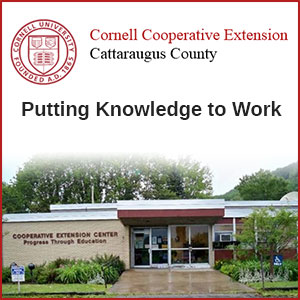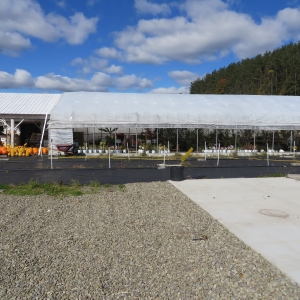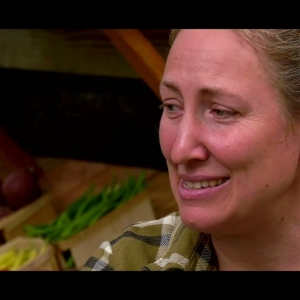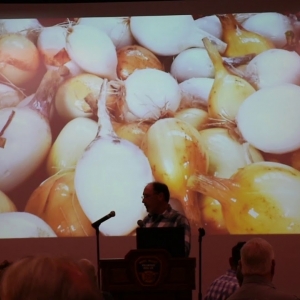Other Ag News:
(Washington, D.C., November 20, 2025) — U.S. Secretary of Agriculture Brooke L. Rollins announced new guidance (PDF, 236 KB) surrounding the U.S. Department of Agriculture’s (USDA) commitment to protecting faith and religious expression and accommodation rights in the federal workplace.
(Washington, D.C., November 17, 2025) – Three days after the government reopened and despite the radical left Democrat caused shutdown, President Donald J. Trump and U.S. Secretary of Agriculture Brooke L. Rollins continue to put Farmers First, including the unprecedented move to reopen over 2,000 county FSA offices in the middle of the government shutdown so farmers could continue to access U.S. Department of Agriculture (USDA) services during harvest.
Federal food safety agencies have seen significant staff losses in 2025, threatening their ability to serve stakeholders and ensure the safety of our food supply Several federal agencies – including the Food and Drug Administration (FDA), the US Department of Agriculture’s (USDA) Food Safety and Inspection Service (FSIS), and Animal and Plant Health Inspection Service (APHIS) – hold this responsibility. These federal agencies work with state partners to set and enforce food safety standards and help reduce the risk of foodborne illness outbreaks or the spread of disease from animals to humans. Staffing losses at the agencies, particularly inspectors and outreach professionals, threaten the safety of the US food system and the ability to serve agricultural enterprises of all types and sizes
This post continues the National Sustainable Agriculture Coalition’s (NSAC) series on the federal staffing crisis by examining staff losses at key food safety agencies. In this post, we extend our lens beyond the United States Department of Agriculture (USDA) to also include the Food and Drug Administration (FDA), which is part of the Department of Health and Human Services (HHS). This is the sixth post in the series. Previous posts have given an overview of USDA staffing losses and cuts at key USDA agencies. All of the posts in the staffing crisis series are here.
Staff losses at FSIS and APHIS in particular will likely be further exacerbated by the USDA’s planned reorganization. On July 24, 2025, USDA announced a major reorganization of the department, drafted without any input from farmers, Congress, or other stakeholders. The National Sustainable Agriculture Coalition (NSAC) continues to encourage USDA to allow meaningful stakeholder input into any reorganization and to share all comments that were received from stakeholders via an ad hoc public comment. NSAC’s reorganization comment can be seen here.
Food Safety Agencies Face Severe Staffing ShortagesEach of the food safety agencies has experienced significant staff losses in 2025. APHIS has seen the most dramatic staff reductions, losing approximately 20% of their staff to the Deferred Resignation Program (DRP) and other separations between January and March 2025. FSIS lost approximately 8% of their workforce to the DRP and separations. The DRP was a program led by the Department of Government Efficiency (DOGE) to reduce federal staff numbers by offering incentives for employees to resign. Unfortunately, it is not yet clear how many FDA employees left the agency via the DRP, but they have lost at least 3,500 staff to reductions in force in April 2025 and an additional 411 employees to other separations between January and March 2025, according to data from the Office of Personnel Management (OPM). It is not yet entirely clear what portions of these positions have been lost within the broader Human Food Program, or the Office of Produce Safety, those sections within FDA that most impact farmers and the food system.
Figure 1: Percentage of Staff Lost to DRP and Separations
Separations data from OPMWhile each agency takes a different approach and has different responsibilities regarding food safety, these staff losses will pose major challenges for them to fulfill their missions. APHIS, with the largest staff loss percentage, is responsible for preventing and addressing the spread of plant and animal disease. This means that they do not inspect final food products, but their efforts to prevent the spread of pests and disease help protect the human food chain from contamination. After the resignation and separation of more than 1,600 employees, APHIS found itself scrambling to refill positions that it realized were essential to securing the safety of the American food and agriculture system. FSIS is the agency responsible for ensuring the safety of meat, poultry, and egg products. It conducts continuous inspection at slaughter facilities and verifies that processors meet federal food safety standards. It also liaises with and provides support to states that run their own meat inspection agencies, which have been shown to benefit small meat processors, and other supplementary programs such as the Cooperative Interstate Shipment that support small processors. With hundreds of staff lost in 2025, the agency faces growing gaps in its ability to provide adequate inspection and support for processors, particularly small plants.
Reorganization Threatens to Worsen Staffing CrisisThese widespread staff losses at food safety agencies are likely to be further exacerbated by the USDA’s planned reorganization. While APHIS and FSIS are not specifically named in the reorganization plan, they will undoubtedly experience its impacts. One of the major tenets of the reorganization plan is the movement of USDA staff and offices outside of the Washington, DC capitol region. Approximately 14% of APHIS staff and approximately 8% of FSIS staff are located in Washington, DC, Maryland, or Virginia, according to data from OPM. Secretary of Agriculture, Brooke Rollins expects up to 50% of USDA’s capitol area staff to leave the Department because they decline to relocate. Similarly, they will experience its universal proposal for consolidation of support, FOIA, and Tribal relationship functions. For FSIS in particular, which provides voluntary inspection for non-amenable species including bison, often cultivated by different Tribal nations, this lack of direct connections between FSIS and Tribes could prove harmful. These additional staff losses and other impacts of the planned reorganization will further disrupt the ability of the agencies to fulfill their missions and serve stakeholders.
Losing Institutional Knowledge and Technical ExpertiseThe staff at these agencies that safeguard food safety are highly specialized professionals and each loss represents a loss of essential institutional knowledge. It is impossible to know specific occupations or experiences of the staff who accepted the DRP. This is due to the failure of OPM or other agencies to provide any detailed information on the tens of thousands of staff who left federal employment via the program. NSAC joins the calls of many other stakeholders for OPM and all agencies to provide detailed information on the scope and impact of DRP resignations.
While we cannot know the scope of lost institutional knowledge due to the DRP, the FDA staff who otherwise separated from the agency between January and March 2025 had an average of 21 years of experience and the FDA inspectors who separated, specifically, had an average of 19 years of experience, according to data from OPM. The FSIS employees who separated had an average of 16 years of service and APHIS employees had an average of 10 years of experience. Approximately 15% of the APHIS employees who separated from the agency also held masters degrees, doctorates, or another advanced degree, again according to data from OPM. Within FSIS, more than 63% of the staff who separated from the agency were classified as part of the investigations group, which includes inspectors.
Together, these staff losses threaten the ability of the agencies to both safeguard food safety and to effectively engage with stakeholders such as small and diversified farms and processors. For example, FDA is responsible for the implementation of the Food Safety Modernization Act (FSMA) that significantly expanded the regulation of fruit and vegetable production. NSAC continues to advocate that it is essential that these standards be appropriate and accessible for small and diversified farms and those who implement sustainable practices. Fewer staff at FDA, particularly in the education and inspection domains, may lead to a lack of experience in the design of the remaining FSMA rules and undermine their appropriateness for a wide range of farms, especially those pursuing activities which help mitigate climate and environmental impacts.
Rebuilding the Workforce for a Safe and Thriving Food SystemTogether, the staff at these different agencies help ensure a safe food system that serves consumers and farmers. These major staff losses are extremely concerning not just for preventing foodborne illness but also for the ability of the agencies to develop, educate, and enforce standards and regulations in a manner that is appropriate for farmers and processors of all sizes.
If they are understaffed and overstretched, agencies like FSIS might prioritize working with large processing facilities, as no statutory provision explicitly stops them from doing so. This would undermine support and outreach to small and midsize firms. For example, during the recent federal government shutdown, there is evidence that FSIS continued to pay inspectors at large processing facilities while inspectors at small and midsized plants were not paid. This can lead to declines in inspector morale, inspection quality, and long term struggles in hiring and retaining future inspectors. Adequately staffing these and other federal agencies is essential to serve stakeholders and fulfill the mission of USDA and FDA. NSAC calls for the immediate restoration of staffing levels as well as transparency and stakeholder input for both the staffing plans and the proposed reorganization.
The post USDA Staffing Crisis: Food Safety Agencies Struggle as Federal Workforce Shrinks appeared first on National Sustainable Agriculture Coalition.
(Washington, D.C., November 13, 2025) – Today, the U.S. Department of Agriculture (USDA) announced the next milestone in the fight against New World screwworm (NWS) – the opening of a sterile fly dispersal facility in Tampico, Mexico. The Tampico facility will allow USDA to disperse sterile flies aerially across northeastern Mexico, including in Nuevo Leon.
(Washington, D.C., November 13, 2025) – Last week in Mexico City, Mexico, U.S. Secretary of Agriculture Brooke L. Rollins led the largest U.S. Department of Agriculture agribusiness trade mission in the history of our country. During the mission to Mexico, 41 U.S. businesses, 33 cooperators and agriculture advocacy groups, six state departments of agriculture, and 150 participants conducted more than 500 business to business meetings over three days.
FOR IMMEDIATE RELEASE
Contact: Laura Zaks
National Sustainable Agriculture Coalition
press@sustainableagriculture.net
Tel. 347.563.6408
Release: Farm Bill Extension, USDA Funding Bill UnderwhelmWashington, DC, November 10, 2025 – After weeks of uncertainty, Congress has unveiled a one-year extension of the Agriculture Improvement Act of 2018 as well as the fiscal year (FY) 2026 agriculture appropriations bill, a package that, according to the National Sustainable Agriculture Coalition (NSAC) could undermine conservation efforts and limit support for family farmers.
“After weeks of uncertainty, legislation unveiled over the weekend opts to needlessly restrict farmers’ ability to reduce input costs, invest in clean water, and build healthy soil. The FY2026 agriculture appropriations bill cuts nearly $100 million in support for conservation technical assistance, and the proposed farm bill extension fails to extend conservation program payment limits. Taken together, these bills make it harder for a wide variety of family farmers to enhance their productivity and protect natural resources, and bias federal conservation programs towards serving the largest operations first and foremost,” said Mike Lavender, NSAC Policy Director.
On Sunday, Congress released the text of an extension of the Agriculture Improvement Act of 2018 (2018 Farm Bill). In lieu of a much-needed five-year farm bill, this one-year extension would continue most farm bill programs unimpeded through at least September 30, 2026. It also suspends permanent price support authority for the 2026 crop and calendar year, ensuring that commodity programs do not revert to outdated 20th century law in the new year.
The farm bill extension also includes:
- Extension of the Conservation Reserve Program (CRP), but fails to provide critical funding for the CRP-Transition Incentive Program which will no longer be able to offer incentives for land owners who rent or sell their land to beginning farmers and ranchers who commit to using sustainable grazing practices, resource-conserving cropping systems, or transitioning to organic production.
- Failure to extend payment limits for the Environmental Quality Incentives Program (EQIP) and the Conservation Stewardship Program (CSP), removing any cap on the total cost-share a single operation can receive through EQIP and CSP. Coupled with the removal of Adjusted Gross Income (AGI) eligibility requirements in this summer’s reconciliation package, this paves the way for very large operations to consume disproportionate amounts of conservation dollars.
“The FY2026 Agriculture Appropriations Bill released over the weekend brings cuts to critical conservation, urban agriculture, and local and regional food system programs. While the bill manages level funding for many essential programs and avoids harmful riders that would limit USDA from promoting fair market competition for livestock and poultry growers, it nonetheless falls short of delivering meaningful progress,” said Lavender.
Of NSAC’s FY2026 Appropriations Priorities, the bill:
- Maintains level funding for the Sustainable Agriculture Research & Education ($48M) program; the Organic Transitions Program ($7.5M); and the Farming Opportunities Training and Outreach program
- Cuts funding for Conservation Technical Assistance by nearly $100M to $679.6M; for the Office of Urban Agriculture and Innovative Production by $2M to $5M; Grazing Lands Conservation Initiative by $2M to $8M; and the Local Agriculture Market Program by slashing Value Added Producer Grants from $11.5M to $8M and Farmers Market and Local Food Promotion Grants to $7.3M
Finally, negotiations over the weekend have so far failed to make progress toward ensuring both access to affordable healthcare and timely disbursement of full Supplemental Nutrition Assistance Program (SNAP) benefits.
In both instances, states have been forced to fill the gaps. Access to critical services – such as reliable internet – can be challenging or even nonexistent in many parts of rural America. Unfortunately, this also extends to access to fresh food and affordable health care. Healthy, thriving farmers, families, and rural communities are a foundational component of a sustainable, just food and farm system – and ensuring that all Americans can access quality, affordable healthcare and nutrition is a critical part of reaching that goal.
For further analysis, stay tuned to NSAC’s blog in the coming days.
###
About the National Sustainable Agriculture Coalition (NSAC):
The National Sustainable Agriculture Coalition is a grassroots alliance that advocates for federal policy reform supporting the long-term social, economic, and environmental sustainability of agriculture, natural resources, and rural communities. Learn more: https://sustainableagriculture.net/
The post Release: Farm Bill Extension, USDA Funding Bill Underwhelm appeared first on National Sustainable Agriculture Coalition.
Several offices within the United States Department of Agriculture (USDA) provide legal guidance, oversight, and accountability for actions the Department takes, and these offices have endured significant staff losses in 2025. Their work, though often invisible to the public, is essential for ensuring that USDA follows its own rules and those set by Congress. It makes the Department transparent, accountable to the public for its decisions, and ensures it treats farmers and other stakeholders fairly. The major staff losses these offices are experiencing threaten that work.
This post is the sixth in our ongoing series on the staffing crisis at USDA. It examines the massive cuts to legal oversight offices within the Department including the National Appeals Division (NAD), the Office of the Assistant Secretary for Civil Rights (OASCR), the Office of the General Counsel (OGC), and the Office of the Inspector General (OIG) and the impacts of the USDA’s planned reorganization. Together, these agencies provide different aspects of essential legal oversight and guidance for USDA and their staffing levels have been gutted in 2025.
The National Sustainable Agriculture Coalition (NSAC) continues to call for long-term adequate USDA staffing levels and the opportunity for stakeholders to provide meaningful guidance on the proposed reorganization. Read NSAC’s comment on the proposed reorganization here.
Steep Declines Across Key OfficesWhile each oversight office has a unique role and responsibilities within USDA, together they provide the legal structure and guidance needed to ensure that the Department and its staff function legally and ethically. The NAD (part of the Office of Hearings and Appeals) conducts impartial administrative appeals hearings for program decisions made by several USDA agencies. NAD is where an appeal would be handled if, for instance, a farmer believed that their conservation contract was unfairly terminated. OASCR ensures that both USDA stakeholders and employees are treated fairly and in accordance with federal civil rights laws. Any stakeholder or employee who believes that they have experienced discrimination or unfair treatment from a USDA agency or staff member can file a complaint with the OASCR, which will investigate and take appropriate actions, if needed. The OGC is an independent legal office within USDA that provides legal guidance to the Secretary of Agriculture and department staff. OGC provides guidance to ensure that all USDA programs and activities comply with federal laws and regulations. The OIG is an independent agency within the Department responsible for auditing agencies and investigating allegations of fraud, waste, or abuse within USDA agencies.
These four legal oversight offices have seen significant staff losses in 2025. Each of these offices have smaller staffs than other USDA agencies and therefore have been particularly vulnerable to recent staff cuts. The hardest hit office has been OASCR, which has lost 33% of its staff since January 2025. The relatively small office (150 employees in September 2024, according to the Office of Personnel Management (OPM)) lost 47 employees to the Deferred Resignation Program (DRP) and an additional 2 staff to other separations between January and March 2025. The DRP was a program created by the Department of Government Efficiency (DOGE) to cut federal staffing numbers by offering incentives for employees to resign. Separations can include firing, quitting, retiring, transferring to another agency, or other separation from an agency. The figure below shows the percentage of employees lost from each agency in 2025, including both the number who accepted the DRP and those who had other separations between January and March 2025.
Figure 1: Staff Lost to Both DRP and Separations (January-March 2025)
Separations data from OPM Losses Threaten Unfair Treatment and DelaysEach legal office at the USDA provides a different aspect of essential legal oversight and guidance to the Department and its agencies. Staff losses at these offices will ripple throughout all agencies of USDA and threaten the Department’s ability to serve all farmers and stakeholders fairly.
The NAD oversees administrative appeals that farmers and other stakeholders may file when they disagree with decisions made by certain USDA agencies. In 2025, the NAD caseload has been exceptionally high due to the unprecedented number of signed agreements USDA has terminated. For example, in April 2025, USDA abruptly terminated over one hundred agreements under the Partnerships for Climate Smart Commodities program, many of which appealed to the NAD. The NAD must hear each of these appeals, review the appropriateness of the decisions, and issue a decision. Access to fair and timely appeals is essential for program accountability and farmer trust. Fewer staff at NAD means higher case loads and longer wait times for resolution. These delays severely decrease the efficacy of this important avenue to ensure fairness for farmers; who may be irrevocably harmed by an agency action if its reversal is unnecessarily delayed.
Losses to the OASCR are particularly troubling given that USDA has a well-documented history of civil rights violations. Perhaps most notably, the Farm Service Agency (FSA) was found to have discriminated against Black farmers in allocating farm loans and disaster payments in the Pigford lawsuit, settled in 1999 with USDA agreeing to pay more than $1 billion to complainants. Congress also authorized an additional $1 billion in payments to Black farmers for discrimination in 2010, a settlement often called Pigford II.
OASCR is responsible for preventing – through training and oversight – these kinds of civil rights violations and for investigating and resolving complaints when they arise. OIG has frequently found that OASCR takes an excessive amount of time to process claims of discrimination and recommended increased staffing in OASCR. Higher OASCR staffing levels and funding was also one of the major recommendations from the USDA Equity Commission – which have now been scrubbed from all USDA websites – to ensure that they can process all civil rights complaints in a timely manner. These recent staff losses fly directly in the face of this and other recommendations to keep OASCR and legal offices adequately staffed.
OGC attorneys are the chief legal USDA officers. Fewer attorneys at OGC means that all processes at the Department will be slowed and the effects will ripple into all USDA agencies. Firstly, OGC attorneys advise USDA leadership on federal laws and regulations and represent USDA in court and administrative proceedings, defending agency actions and enforcing USDA regulations. With nearly 20% fewer OGC attorneys, OGC attorneys will be less available to enforce USDA regulations and staff will be stretched thin trying to review regulations and policies to ensure that they are legally sound. This will likely delay program revisions across all USDA agencies and increase the risk that USDA may adopt policies that do not comply with federal law. Ultimately, fewer OGC attorneys threatens all USDA programs and policies.
Finally, OIG is an independent, non-partisan oversight body that promotes accountability and efficiency within USDA. OIG ensures that all of the other USDA agencies are operating effectively and efficiently and they investigate allegations of fraud, waste, and abuse. While OIG has seen the smallest number of staff losses, any losses to this office pose a major threat to their ability to provide essential watchdog services. Notably, in January 2025, President Trump fired USDA’s Inspector General (IG), the head of OIG, along with the IGs from sixteen other agencies. Ultimately, a federal judge found this firing to be illegal but stopped short of reinstating the IG. These disruptions to OIG and OIG staffing are deeply concerning. Without a strong watchdog, even well-intentioned reforms can falter.
Every lost staff member takes with them accrued institutional knowledge and experience. The staff from legal agencies who separated from the Department between January and March 2025 had an average of 23 years of experience, according to data from OPM, and 32% of separated staff held a doctorate or the most advanced degree in their field, likely a Doctorate of Jurisprudence (JD), the degree held by attorneys. Staff in these legal offices are highly skilled with specialized knowledge that is not easily replaced. Every loss represents lost institutional knowledge that helps USDA better serve farmers and communities.
Reorganization Risks Deepening the CrisisExtensive staff losses at USDA legal offices in 2025 have already threatened basic fairness and transparency. USDA’s planned reorganization will further exacerbate these losses. On July 24, 2025, USDA issued a memo detailing a planned reorganization drafted without input from farmers or other stakeholders. The USDA reorganization plan includes major changes including consolidating all civil rights functions into OASCR and consolidating all Freedom of Information Act (FOIA) management into OGC. These changes would significantly increase the responsibilities of those offices at the very time that they are experiencing unprecedented staffing losses. The planned shift of many USDA offices outside of the Washington, DC metro area also threatens to exacerbate staff losses as the Secretary of Agriculture Brooke Rollins expects up to half of the Department’s DC area staff to leave the agency due to relocation. How will the OASCR with 33% fewer and OGC with 19% fewer employees, plus additional losses due to potential relocation, manage their increased responsibilities? Staff that are already stretched thin will be further burdened and the whole system of fairness for farmers will falter.
Rebuilding Capacity Must Be the PriorityThese offices – the National Appeals Division, the Office of the Assistant Secretary for Civil Rights, Office of the General Counsel, and Office of the Inspector General – uphold the rule of law within USDA. Their staffing losses threaten basic fairness, transparency, and due process at the “People’s Department.” Behind every percentage point of lost staff is a farmer waiting longer for their justice, a complaint left uninvestigated, or a new regulation left in limbo. Together these offices provide the legal backbone of USDA and staff losses that will only be exacerbated by the planned reorganization undermine the functioning of the Department and essential trust in government.
NSAC calls for the immediate restoration of staffing for USDA’s legal and oversight offices, as well as transparency and stakeholder input for both the staffing plans and the proposed reorganization. USDA needs a long-term staffing strategy that better supports the mission of the Department and centers on fairness and transparency.
The post USDA Staffing Crisis: Legal Oversight Cuts Undermine Fairness and Accountability appeared first on National Sustainable Agriculture Coalition.
We hope you will join us on December 5 for the 2025 New York Small Farms Summit: Stronger Together! This is an opportunity to meet other farmers and ag supporters, learn about research and education projects, and set priorities for future efforts to grow small farm success.
Small farms are managed by diverse people integrating multiple enterprises to meet personal, local, environmental, and food systems goals. The Cornell Small Farms Program is dedicated to uplifting small-scale farming as a dignified and viable livelihood by providing intentional, innovative, and inclusive services. We envision a future where small farms are valued, respected, and supported for the vital role they play in creating a stronger and more resilient food system.
We often host listening sessions to hear directly from farmers about their challenges and needs. This one-day Summit will bring together farmers, extension educators, university faculty, and other service providers at multiple sites across the state.
A few locations will focus on different topics, including specialty mushrooms (New York City) and veterans in agriculture (Central NY). Each summit site will connect virtually in the morning to hear from agricultural leaders in the state. Subsequent in-person conversations will explore topics on small farm entrepreneurship, resilience, support networks, and priorities moving forward.
You can choose the location or topic area that is best suited to your farm interests, and register now. This Summit is free to attend, with lunch provided and refreshments served throughout the day. Therefore, seating will be limited, and we will open a wait list once registration is filled.
Albany CountyVoorheesville, NY
This site will bring together farmers in the Capital Region. Learn more and register.
Allegany County: Agroforestry GatheringAlfred, NY
Whether for fruit, nuts, fodder or shade, trees can be an integral part of your farming system. This site will focus on the opportunities for resiliency that come from adding tree crops or managing wooded areas of your farm for an agroforestry or silvopasture system. Learn more and register.
Cornell University GatheringIthaca, NY
At this site, we will bring together farmers in the Finger Lakes Region. Learn more and register.
Essex CountyWestport, NY
This site will bring together farmers in the North Country and will discuss the unique markets of the Adirondacks. Learn more and register.
Madison County: Veterans GatheringChittenango, NY
Veterans interested in or actively pursuing an agricultural or food system operation are invited to this Summit site. As a collaborative group, veterans and service providers will engage in an exploration of new farm enterprises, building small farm resilience, and farmer veteran networks of care. Learn more and register.
New York City: Mushroom GatheringLexington Ave, NYC
This site will convene a regional network of mushroom farmers and educators from indoor, outdoor, and community production systems and others in the food network. We will work together to determine grower research and marketing needs, interdisciplinary collaboration opportunities, and community building initiatives. Learn more and register.
Washington CountyArgyle, NY
At this site, we will bring together farmers to explore topics on small farm entrepreneurship, resilience, support networks, and priorities moving forward. Learn more and register.
We look forward to meaningful engagement and conversations focused on how we can be stronger together as we build a future for small farm success across New York.
The post Join Us for the 2025 New York Small Farms Summit: Stronger Together appeared first on Cornell Small Farms.
Editor’s Note: This blog post was written by Gordon Merrick, Policy Program Director at the Organic Farming Research Foundation (OFRF), an NSAC member and first appeared on their site here.
Ensuring that there are sufficient research resources for organic producers is central to OFRF’s mission and represents the backbone of a resilient food system. That’s why we’re proud to announce that we have led the development of a letter urging Congress to include the Organic Science and Research Investment (OSRI) Act in the next Farm Bill, just introduced this month by Representatives Eugene Vindman (D-VA-07) and Mike Lawler (R-NY-17). This bill provides substantial support and funding for agricultural research programming that benefits all farmers, from those certified organic, transitioning to organic farming, and those who are not certified.
What Is the Organic Science and Research Investment Act?The OSRI Act would strategically identify and expand the USDA’s investments into organic research and data programs. Key provisions include:
- Coordinating and Expanding Organic Research Initiative – Directs USDA’s Research, Education, and Economics agencies to catalog and strengthen organic research, ensuring coordination and growth across programs.
- Increased funding for Organic Research and Extension Initiative (OREI) – Steps up funding from $60 million in 2026 to $100 million by 2031, while expanding priorities to include climate change, organic alternatives to prohibited substances, and Traditional Ecological Knowledge.
- Authorization of Researching the Transition to Organic Program (RTOP) – Provides Congressional authorization for the RTOP, currently known as the Organic Transitions Research Program (ORG), with $10 million annually from 2026–27 and $12 million from 2028–31.
- Doubling funding for the Organic Data Initiative (ODI) – $10 million over the life of the Farm Bill to improve data for risk management and market development, while directing ERS to conduct a comprehensive study of the economic impacts of organic agriculture.
These policies directly respond to the reality that organic agriculture currently represents over 6% of U.S. food sales and 15% of produce sales, yet the USDA’s investments into organic-applicable research are less than 2% of research budgets. Importantly, organic agricultural research is applicable to all farm operations, while research into more efficient use of synthetic inputs, or compatibility of genetic engineering with chemistry applications can never apply to an organic farm.
How Does the OSRI Act Help All Farmers?Investing in organic agriculture research isn’t just about advancing one production system; it’s about giving farmers across the United States the tools, knowledge, and resources to stay resilient in the face of a variety of consistent issues, from climate disruptions and volatile supply chains to rapidly changing market dynamics. While the OSRI Act focuses on organic systems, the innovations developed through these programs regularly spill over to the broader agricultural sector. From cover cropping to integrated pest management, organic innovations often set the stage for widespread adoption of ecologically sustainable and economically beneficial practices and systems. Ultimately, these investments empower farmers to make the right choices for their land and market opportunities.
Alongside this direct benefit to farmers through answering questions and addressing agronomic issues, this research funding also flows to the rural communities that host agricultural research stations. According to analysis done by the Economic Research Service, for every $1 invested into agricultural research, over $20 of economic benefit is triggered, both through the project work itself—which can be high-paying and not require an advanced degree—but also through the long-term gains in farm profitability and competitiveness that are the backbones of rural economies.
Broad Support for the OSRI Act Exists, You Can Help!OFRF is joined by over 100 farms, businesses, and organizations from across the country in signing a letter urging the House Agriculture Committee to incorporate OSRI into the Farm Bill. But there is always more we can do to ensure Congress understands the importance of this bill and the policies it represents.
You can help strengthen the future of agricultural research by:
- Signing up for our Communicating with Legislators Course
- Contacting your Representatives and Senators to urge them to co-sponsor the bill.
- Share this announcement and amplify the message using #InvestInOrganicResearch
- Writing a Letter to The Editor or Opinion Piece in your local newspaper, publicly calling on your elected officials to support this legislation.
Please reach out if you have any questions about how to get involved, we’re here to help! Contact gordon[at]ofrf.org
. . . . .
Support for the OSRI Act:
“Investing in organic agriculture research helps farmers and communities improve resiliency to both climate and supply chain disruption. These research programs build essential knowledge that empowers regionally appropriate organic programs to thrive. In turn, the benefits ripple across society by lifting rural communities, strengthening organic supply chains, and expanding healthy options for consumers.” – Renaud des Rosiers, Amy’s Kitchen
“The National Sustainable Agriculture Coalition strongly endorses the Organic Science and Research Investment Act (OSRI Act). The OSRI Act makes meaningful investments in providing organic producers with the research and tools they need to continue to improve upon already resilient farming systems and meet the growing market demand for organic products. A boost in funding for scientific research and economic data and analysis within NIFA and ARS will support both organic and conventional agricultural producers so they can sustain and improve their operations while helping us reach meaningful solutions for the climate crisis.” – Nick Rossi, National Sustainable Agriculture Coalition (NSAC)
“Research is critical to the growth of the organic sector, which is an extraordinarily important tool in mitigating the threats to health, biodiversity, and climate.” – Jay Feldman, Beyond Pesticides
“Expanding American consumers’ access to healthy foods, free of synthetic pesticides, will significantly contribute to Making America Healthy Again. Organic agriculture remains the single best way to achieve this goal. Developing strong research and extension programs to support US organic agriculture are critical to the expansion of this important sector of our food economy.” – Matthew Grieshop, Grimm Family Center for Organic Production and Research at California Polytechnic State University
“Organic research is vital to maintain the backbone of critical agricultural efforts that help small-scale farmers and ensure that farming works for consumers as well.” – Colehour Bondera, Kanalani Ohana Farm
“Supporting the Organic Science and Research Investment Act means investing in soil health, the living foundation of organic farming and long-term sustainability.” – Karlin Warner, OneCert, Inc.
“We have heard time and time again from our local organic extension office that their organic extension agents serve more non-organic producers than they do already certified producers. There is a lot of interest from non-organic producers in learning new and innovative ways to incorporate organic practices on their farms. This reinforces what organic advocates have been suggesting for decades – that investments in organic research benefits ALL producers.” – Mike Dill, Organically Grown Company
“Strong, verifiable peer-reviewed research is needed to give organic farmers the tools that they need to be successful and competitive with sustainable organic cropping systems. Funding research so that researchers, such as those in the American Society for Horticultural Science, can continue to develop innovative research-based solutions and technologies is critically important to farm success.” – Curt R Rom, American Society for Horticultural Science
The post Cross Post: The Organic Science and Research Investment Act: What It Is and How It Benefits All Farmers appeared first on National Sustainable Agriculture Coalition.
Pages
Signup for the Ag Newsletter
Get the freshest farm news, events and updates from in and around Cattaraugus County, NY at least once a month! Go signup!
Other ways to stay connected:
Get Involved in Farming
Resources for Starting a Farm in Cattaraugus County
Profile of Cattaraugus County soils
Agriculture Career Exploration
Questions about farming? Find out Who to Call










